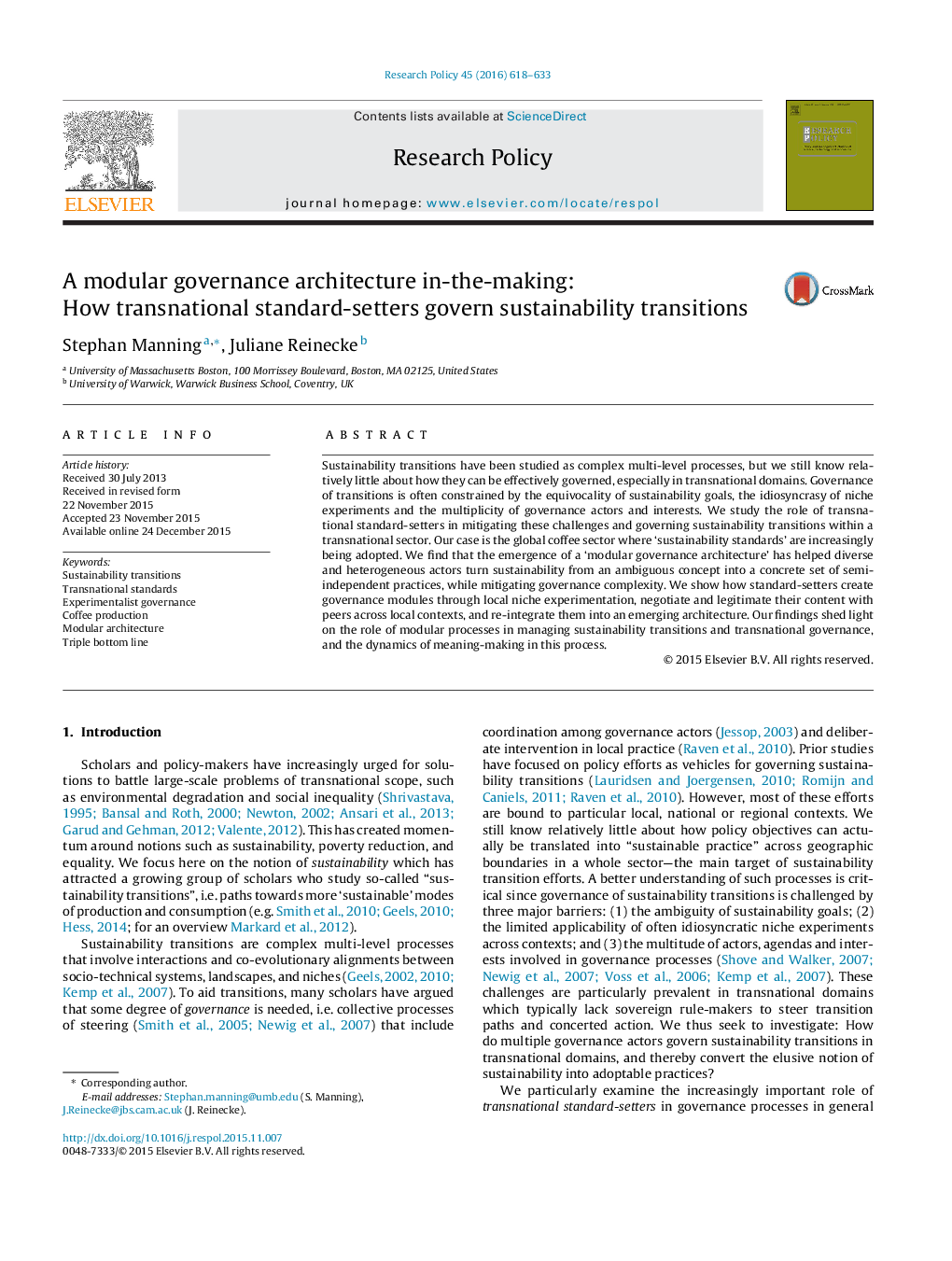| Article ID | Journal | Published Year | Pages | File Type |
|---|---|---|---|---|
| 10482506 | Research Policy | 2016 | 16 Pages |
Abstract
Sustainability transitions have been studied as complex multi-level processes, but we still know relatively little about how they can be effectively governed, especially in transnational domains. Governance of transitions is often constrained by the equivocality of sustainability goals, the idiosyncrasy of niche experiments and the multiplicity of governance actors and interests. We study the role of transnational standard-setters in mitigating these challenges and governing sustainability transitions within a transnational sector. Our case is the global coffee sector where 'sustainability standards' are increasingly being adopted. We find that the emergence of a 'modular governance architecture' has helped diverse and heterogeneous actors turn sustainability from an ambiguous concept into a concrete set of semi-independent practices, while mitigating governance complexity. We show how standard-setters create governance modules through local niche experimentation, negotiate and legitimate their content with peers across local contexts, and re-integrate them into an emerging architecture. Our findings shed light on the role of modular processes in managing sustainability transitions and transnational governance, and the dynamics of meaning-making in this process.
Related Topics
Social Sciences and Humanities
Business, Management and Accounting
Business and International Management
Authors
Stephan Manning, Juliane Reinecke,
